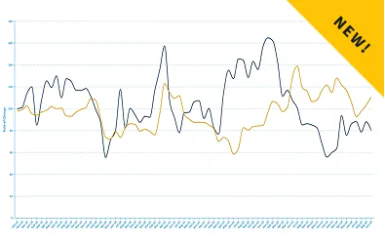Technician Path and Curriculum
The RV Technical Institute technician training program is a hands-on, competency-based program designed by RV Technical Institute staff, and subject matter experts from the supplier, manufacturer, dealer and independent technician realms of the RV industry. These industry experts have identified the key areas of required knowledge and expertise needed to develop a well-rounded, practical training and certification program.
The RVTI curriculum is divided into four levels of training and proficiency covering theory and application, specialties training and troubleshooting. The program mirrors a real-world workplace so you can learn in an actual shop environment. Each level of training builds on the foundation of the previous level, teaching techs how to diagnose, maintain and repair RV systems and components. From here, techs can move on to increase proficiency through specialized training courses.
What does the RV Technical Institute technician career path look like?
A technician will be deemed a Level 1, 2, 3, or Level 4 technician based on completion of the designated levels and the ability to successfully demonstrate the required knowledge and skills:
- Level 1: A pre-delivery inspector (PDI) technician with a proven skill set to prepare an RV for customer delivery by verifying the operation of all components. To achieve this level, you must successfully pass Level 1 written and skill-based (practical) exams.
- Level 2: A technician that has theoretical knowledge of all the systems and components within an RV and a proven skill set to be able to perform basic diagnostics, troubleshooting, and repairs on those systems and components. To achieve this level, you must successfully pass Level 1 and 2 written and skill-based (practical) exams.
- Level 3: A technician that has completed the supplier trainings on specific types of components and increased their skill set to be able to perform advanced diagnostics, troubleshooting, and repairs on those systems and components. To achieve this level, you must successfully pass Level 1 and 2 written and skill-based (practical) exams as well as attend and pass 24-hours of approved hands-on vendor trainings within five years covering the minimum topics listed for each specialty.
- Electrical Specialist: Demonstrates skill and expertise in converter, inverter, transfer switches, management systems, batteries including lithium-ion, surge protection and solar
- Chassis Specialist: Demonstrates skill and expertise in stabilization, leveling, electric steps, braking system (hydraulic and electric) and vehicle weights
- Electronics Specialist: Demonstrates skill and expertise in satellite systems, multi-plexing and control area networks (CAN)
- Appliance Specialist: Demonstrates skill and expertise in furnaces, air conditioning, refrigerators, water heaters (including traditional, instantaneous and hydronic)
- Slideout Specialist: Demonstrates skill and expertise in cable slide-outs, above floor slide-outs, through frame slide-outs (including screw-type, rack-n-pinion, hydraulic and flush mounted)
- Level 4 Master Technician: The Master Technician has completed all five designated specialties through vendor trainings and is proficient in troubleshooting and repair of all the major systems and components within an RV, 120 total hours of training within 5 years
How Long Does Each Certification Last and What Do Technicians Need to Do to Re-Certify?
- Level 1:
- Good for life with no re-certification or continuing education requirements
- A yearly information and employment verification check-in are needed to stay active
- Level 2:
- Good for 5 years
- Over this period, the technician must acquire 24 hours of continuing education credits (CEUs) of approved hands-on or online trainings
- No trainings older than 5 years will be counted
- A yearly information and employment verification check-in are needed to stay active
- Level 3:
- Good for 5 years
- Over this period, the technician must acquire 24 hours of continuing education credits (CEUs) of approved hands-on or online trainings
- 8 of the 24 hours of CEUs must be directly related to the specialty held
- No trainings older than 5 years will be counted and no trainings can repeat
- A yearly information and employment verification check-in are needed to stay active
- Level 4 Master Technician:
- Good for 5 years
- Over this period, the technician must acquire 24 hours of continuing education credits (CEUs) of approved hands-on or online trainings
- These trainings can include participation in RVTI or other industry-approved activities such as curriculum development, train-the-trainer programs and leadership training
- No trainings older than 5 years will be counted
- A yearly information and employment verification check-in are needed to stay active
Please Sign in to View
Log in to view member-only content.
If you believe you are receiving this message in error contact us at memberservices@rvia.org.

